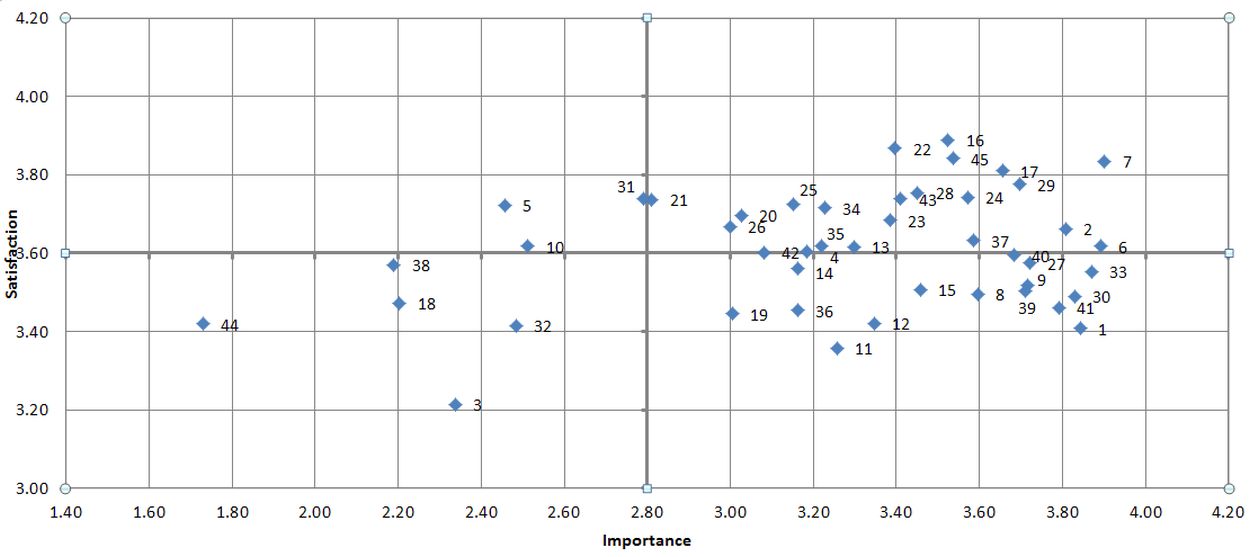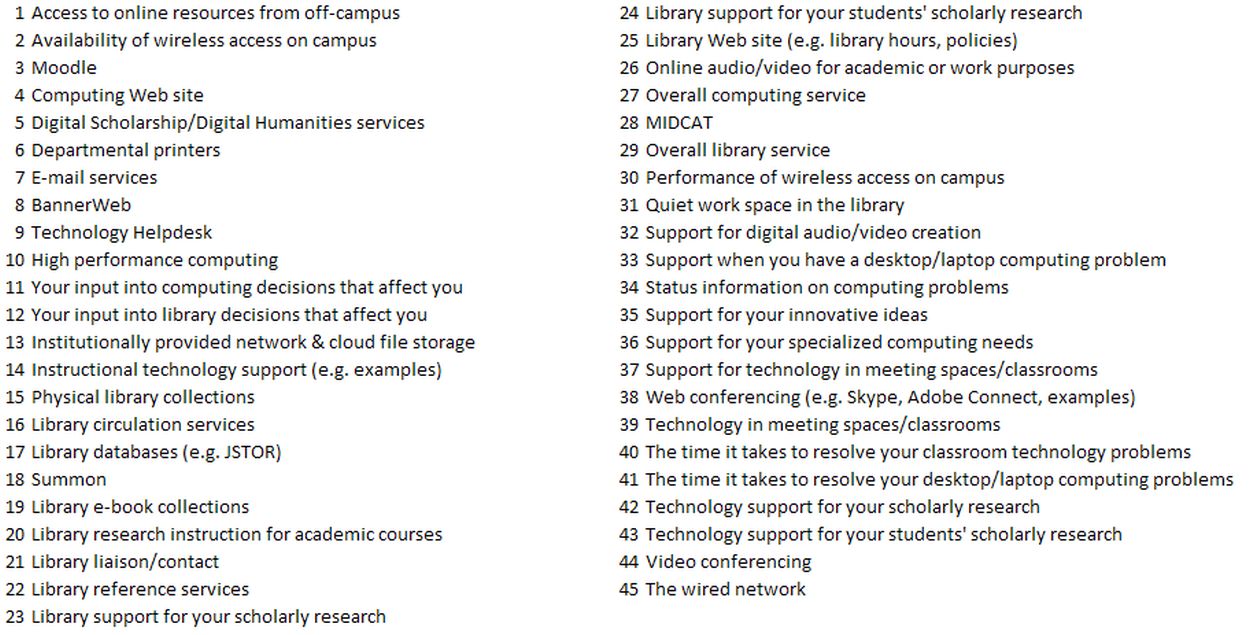Summary and selected trends
The 2014 survey saw a response rate of 68.2% (n=253) of faculty.
- In 2014, the 5 most important services for faculty were:
- e-mail services (most important)
- departmental printers
- support when you have a computing problem
- access to online resources from off-campus
- performance of wireless access on campus
- e-mail services (most important)
- In 2014, the 5 least important services for faculty were:
- video conferencing (least important)
- web conferencing
- Summon
- Moodle
- digital scholarship/digital humanities services
- video conferencing (least important)
- In 2014, the top 5 most satisfactory services for faculty were:
- library circulation services (most satisfactory)
- library reference services
- wired network
- e-mail services
- library databases (e.g. JSTOR, for example)
- library circulation services (most satisfactory)
- In 2014, the 6 least satisfactory services for faculty were:
- Moodle (least satisfactory)
- your input into computing decisions that affect you
- access to online resources from off-campus
- support for audio/visual creation tied with video conferencing tied with your input into library decisions that affect you
- Moodle (least satisfactory)
- Compared with the 2012 survey results, faculty responses in each category suggest:
- an increase in the importance of:
- Moodle, support for innovative ideas, Summon, support for audio/video creation, and library e-book collections
- a decrease in the importance of:
- wired network, quiet work space in the library, overall library service, and physical library collections
- an increase in the use of:
- library e-book collections, technology in meeting spaces/classrooms, and library liaison/contact
- a decrease in the use of:
- video conferencing
- an increase in the satisfaction with:
- time it takes to resolve your computing problems, library liaison/contact, support when you have a computing problem, time it takes to resolve your classroom technology problems, and performance of wireless access on campus
- a decrease in the satisfaction with:
- access to online resources from off-campus
- an increase in the importance of:
- In 2014, faculty were most interested in learning more about:
- avoiding and solving computer problems, backing up data, and finding and evaluating information for your scholarship
- In 2014, 52.6% of faculty reported never having used Moodle (down from 62% in 2012)

